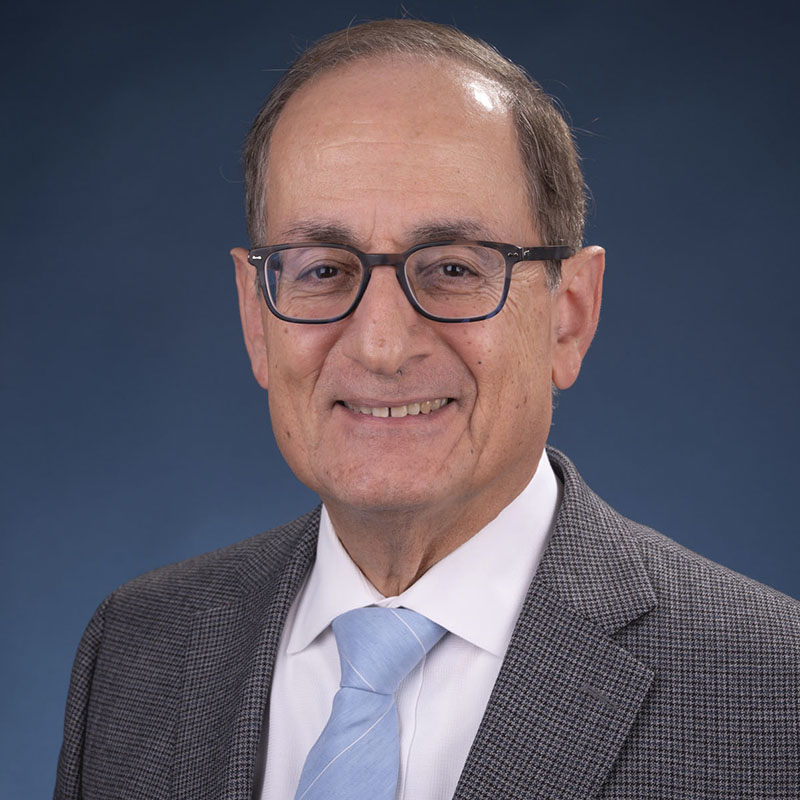The Bible gives many examples of divine healing of the sick, but that was long ago and far away. What about people today—does God still heal today?

God instructs His people who are sick to call for the elders to pray and anoint them with oil as a sign of faith in His divine healing power.
God healed many people in Bible times. But can you and I have confidence that God will hear our prayers for healing and intervene as He knows is ultimately best for us?
God designed our physical body
In the creation account of Genesis, God reveals that He made Adam, the first man, of the “dust of the ground” and then breathed into him the “breath of life; and man became a living being” (Genesis 2:7). Adam, the father of all human beings, was designed to be flesh and blood. This means, among other things, that he was subject to illness and injury, and eventually death. Even if a man was never injured and never became sick, he still would not live forever because the physical body will in time simply wear out.
The author of Hebrews certainly understood that the human body was never intended to live forever when he wrote, “It is appointed for men to die once, but after this the judgment” (Hebrews 9:27).
The fact that we all will eventually face death is the starting point in understanding divine healing, because it means God will not always heal us. In His wisdom, and according to His plan and will, at some point in our lives He will allow every human being to die.
Divine healing from the Scriptures
The Bible does give us many examples of individuals who were healed of serious problems, including leprosy, blindness and being crippled. God even restored physical life to some who had died. God performed these miracles through men like Elijah and Elisha and, in the New Testament, through the original apostles. Of course, Jesus Christ, who was God in the flesh, also healed and even resurrected various people throughout the course of His earthly ministry.
It is clear that God can and at times does intervene in miraculous ways to heal even serious or fatal conditions. Physical healing is a dramatic demonstration of God’s power and love for human beings. It also reveals the depth of His involvement in the lives of people. The Creator is certainly not an aloof, uninvolved Deity as some people would claim!
New Testament instructions
There are instructions in the New Testament regarding physical healing. However, many people today are completely unaware of these instructions.
The apostle James wrote, “Is anyone among you sick? Let him call for the elders of the church, and let them pray over him, anointing him with oil in the name of the Lord. And the prayer of faith will save the sick, and the Lord will raise him up. And if he has committed sins, he will be forgiven. Confess your trespasses to one another, and pray for one another, that you may be healed. The effective, fervent prayer of a righteous man avails much” (James 5:14-16).
When Jesus Christ instructed and sent the disciples out to preach the gospel, in addition to teaching the people they “anointed with oil many who were sick, and healed them” (Mark 6:13). They followed the pattern of anointing with oil and laying hands on the person who was sick, much as the ministry of Jesus Christ does to this day.
The type of oil used is not specified, but olive oil was the basis for the anointing oil used by the Old Testament priesthood. It was also widely used for medicinal purposes and as fuel in lamps. In both regards—as an aid to healing and in bringing light—it is an appropriate symbol, representing the power of God’s Holy Spirit through which He heals.
As often as possible, anointing is done in person. However, we also find a biblical example of healing when a cloth or piece of material was anointed by the elder and then sent to the sick person. The apostle Paul practiced this in the New Testament (Acts 19:11-12). We in the Church of God, a Worldwide Association, also follow this example when for some reason a minister is unable to personally anoint the sick individual.
It is God who heals
It is important to understand that neither the minister nor the oil he uses heals. Christians must look to God in faith as the Healer (Matthew 9:20-22; Acts 14:8-10) and therefore strive to live in obedience to His will (1 John 3:22-23). God honors that faith and obedience, and there are many examples of God’s divine healing and intervention in the lives of people in our modern day.
It is also important to note that faith in divine healing does not prohibit a believer from seeking medical advice and treatment, and doing what he or she can do to recuperate from the illness or injury.
The best and most skilled doctor still cannot heal. What he can do is work with the body God created and the systems He put in place. He may be able to assist, setting a broken bone or prescribing a medication, for example. That may allow the bone to mend together properly, or allow the body to better fight off an infection or disease. But the power to heal lies solely in the hands of our Creator, and in the workings of the body He lovingly designed.
Understanding God’s will and timing
Understanding these wonderful promises and fully believing in God’s power to heal, some may wonder why everyone is not healed immediately when he or she is anointed. The Bible, as well as human experience, shows that God sometimes allows health trials to linger, perhaps for years.
The apostle Paul himself suffered with what he called a “thorn in the flesh” (2 Corinthians 12:7), likely an unknown ailment that he apparently had for the remainder of his life. Paul understood, and we should too, that through these kinds of trials God is able to teach many powerful lessons.
When considering ourselves, we should give thought to whether there is something more we should do or learn. We can pray for help to grow in faith and obedience. But when considering other people, keep in mind that it is never helpful to question their faith or obedience. These are matters for God to judge, since we cannot see another’s heart. There may be any number of other reasons why God does not always provide divine healing immediately.
It is instructive to keep in mind that God does desire that humanity enjoy good health (3 John 1:2). This is why His Word addresses keeping our physical body (His spiritual temple) free from harmful addictions, habits or practices (2 Corinthians 6:16-18) and seems to be part of the reason He gave food laws (Leviticus 11 and Deuteronomy 14). For more detailed information on good health, read the other articles in this section on health.
And then eventually it is God’s design that this human life will come to an end. Even in this we can see God’s hand and His wisdom. The strengthening of one’s spiritual character from a health trial can be tremendous. And the example that a faithful Christian sets in approaching the end of his or her life often serves as a powerful testimony to friends and family.
God looks to the future!
God is sovereign and knows about each individual’s needs. He has a perfect and eternal perspective and has our ultimate best interests in mind. Like all trials, sickness can help us grow in faith, obedience, character and our relationship with God. God wants us to learn patience, so we must not assume that His promise of healing must be fulfilled immediately or not at all. He may have lessons for us or those around us to learn. It is God’s prerogative whether He heals immediately or not. It is not necessarily a reflection on an individual’s level of faith.
God promises a wonderful future when there will be no more pain, sorrow or death (Revelation 21:4). In this world we will have troubles, including health problems. God does not promise to keep us alive forever in this physical body, and so all of His faithful servants of times gone by have reached the end of their physical lives and are in their graves. They are awaiting the resurrection from the dead when they will be raised as immortal spirit beings (1 Corinthians 15:50-54).
Does God still heal today? Can you and I have confidence that God will hear our prayers for divine healing and intervene as He knows is best for us? The reassuring answer from the Word of God is a resounding “Yes!” We can go to Him for healing, always trusting in His love and wisdom to give us the perfect answer at the perfect time, what is most needed for our ultimate good (Romans 8:28)!
Read more about what the Bible says about divine healing in the article “Scriptures on Healing.”





